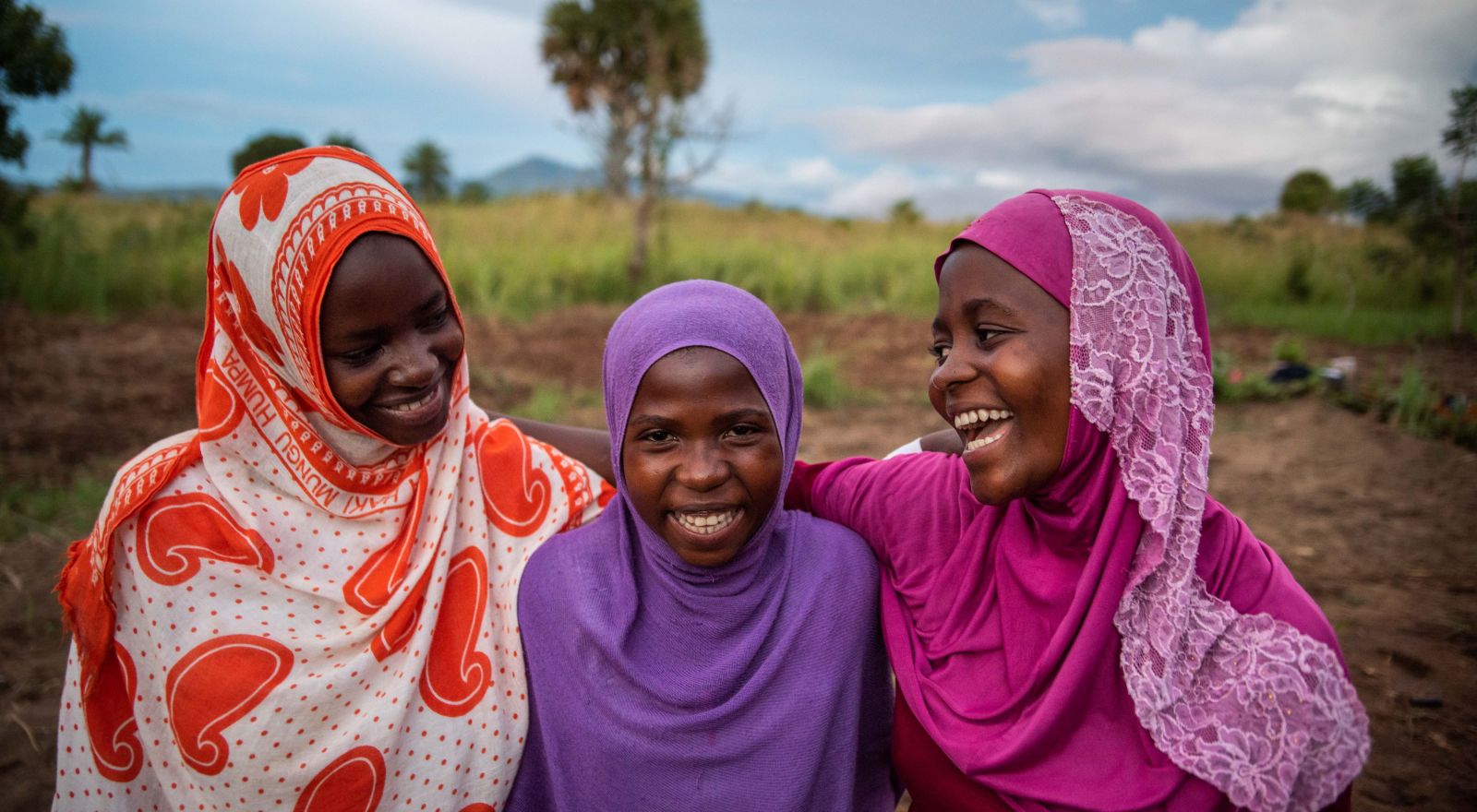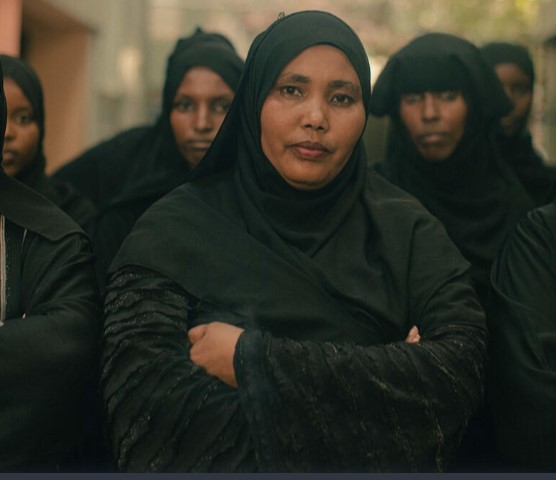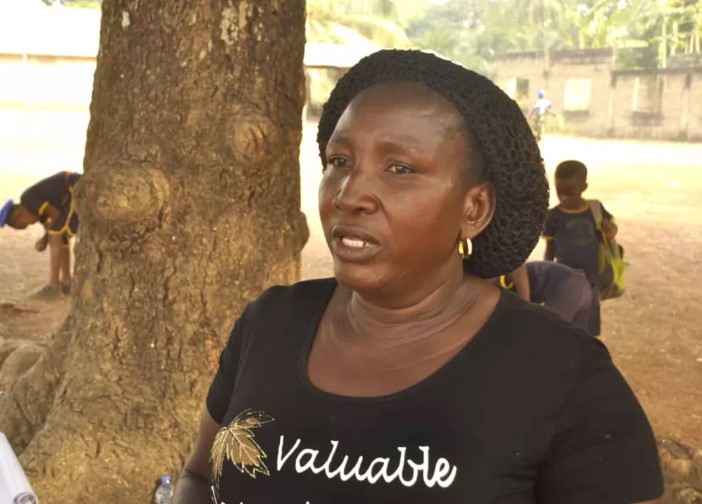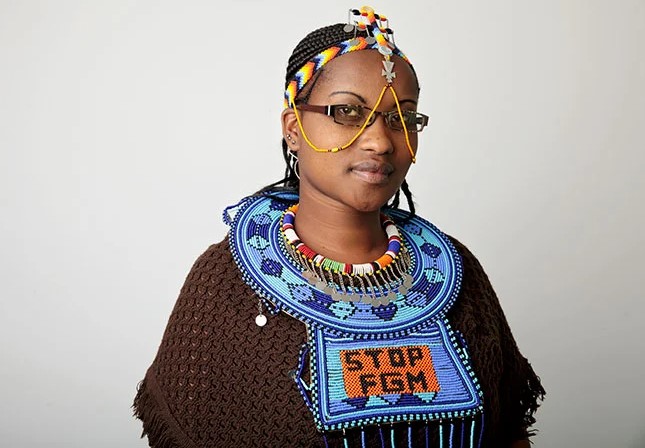Impact of Female Genital Mutilation (FGM) on African Women and Girls
By: Foluke Akinwalere. Freelance Health Writer. Medical review and editorial support provided by the DLHA Team

Young African girls are vulnerable and are targets for the practice of Female Genital Mutilation
Over 230 million girls and women worldwide have undergone female genital mutilation (FGM), with Africa having the highest number at over 144 million. [1]
It is a deeply entrenched cultural practice that involves the partial or total removal of external female genitalia for non-medical reasons. Despite being internationally recognized as a violation of human rights, FGM continues to be practiced in many African countries, affecting millions of women and girls each year. This practice is not only a significant health risk but also a profound violation of the rights of women and girls, with far-reaching consequences.
The prevalence of FGM varies across different regions in Africa, with some communities practicing it almost universally, while others see it as a diminishing tradition. The reasons behind FGM are complex and multifaceted, often rooted in a mix of cultural, social, and religious factors. These factors perpetuate a cycle of suffering and discrimination, making it challenging to eradicate the practice.
This article aims to shed light on the impacts of FGM on African women and girls, examining the immediate and long-term complications of physical, psychological, and social consequences they endure. It also recounts the powerful personal stories of FGM survivors that reveal the harsh realities of this practice to bring human perspective to the statistics. By understanding the profound and often devastating effects of this practice, we can better appreciate the urgency of global efforts to end female genital mutilation/cutting.
The immediate physical consequences of Female Genital Mutilation (FGM) are often severe and can lead to life-threatening complications.
Cutting the nerve ends and sensitive genital tissue causes extreme pain. And the procedure is typically performed without anesthesia. Significant bleeding is common if the clitoral artery or other blood vessel is cut and this can lead to hemorrhagic shock. The healing period is also painful.
The unsanitary conditions in which FGM is often performed, along with the use of non-sterile instruments, significantly increase the risk of infections. These can progress to septicemia, a life-threatening condition if not treated promptly.
FGM can cause acute urinary retention due to swelling and pain, as well as long-term urinary tract infections and difficulty in urination. It also causes vaginal problems such as discharge, itching, and bacterial vaginosis.
The long-term physical health issue resulting from FGM often severely impact a woman’s quality of life.
Many women experience chronic pain in the genital area, which can persist for years after the procedure. This pain can be worsened by menstrual cycles and sexual activity.
FGM can cause significant obstetric complications. Scar tissue and reduced elasticity of the genital area can lead to prolonged labor, increased need for cesarean sections, and severe postpartum hemorrhage. [2] These complications contribute to higher maternal and infant mortality rates.
Female genital mutilation often results in long-term sexual dysfunction, including decreased sexual desire, pain during intercourse, and an inability to achieve sexual satisfaction. This not only affects the physical health of women but also has profound psychological and relational impacts.
The psychological impact of FGM is profound, beginning with the immediate aftermath of the procedure.
Undergoing FGM is a highly traumatic experience. The intense pain and shock can trigger acute stress responses, including disorientation, pain attacks, and severe emotional distress.
The anticipation of FGM includes extreme fear and anxiety, especially among young girls who may be coerced or forcibly subjected to the procedure. This fear is often compounded by the secrecy and stigma surrounding the practice.
The psychological scars of FGM often persist long after the physical wounds have healed, leading to various long-term mental health issues.
Many survivors of FGM develop PTSD, characterised by flashbacks, nightmares, and severe anxiety. The traumatic memories of the procedure can haunt them for years which can also disrupt their daily lives.
Chronic depression and anxiety disorders are common among FGM survivors. The enduring pain, trauma, and social consequences contribute to a pervasive sense of hopelessness and despair.
FGM can lead to significant self-esteem and body image issues. Women may feel mutilated or incomplete, leading to deep-seated feelings or shame and low self-worth. These issues can impact their personal relationships and social interactions, further isolating them from their communities.
FGM has great implications for marriage and sexual relationships, which often lead to marital issues.
Women who have undergone FGM frequently experience sexual dysfunction and pain during intercourse, which can cause significant strain in their marital relationships. These physical and emotional challenges can lead to a lack of intimacy, dissatisfaction, and even marital breakdowns.
In many communities, there is immense pressure on women to undergo FGM to be considered suitable for marriage. Those who resist face rejection and may be deemed unmarriageable, leading to social exclusion and stigma.
By hindering education and limiting economic opportunities, FGM not only violates the rights of women and girls but also undermines the economic potential of entire communities and nations.
FGM also impacts the school attendance and educational achievements of girls. The challenges faced by girls due to the practice, such as health problems, pain, and emotional distress, can result in extended absences, reduce focus, and ultimately, lower academic performance and early school dropout. [3]
At a broader level, the impact of FGM extends to national economies.
The WHO’s Head of Sexual and Reproductive Health, Ian Askew, said in a statement in 2020 that, “FGM is not only a catastrophic abuse of human rights that significantly harm the physical and mental health of millions of girls and women, it is also a drain on a country’s vital economic resources.” [4]
A study conducted in 2010 calculated the obstetric expenses related to FGM as a proportion of total government expenditure in six African nations. The total economic impact of FGM was found to be $3.7 million dollars in these countries, representing approximately 1% of government health expenditure on women of reproductive age. [5]
FGM carries significant social stigma, affecting both those who undergo the procedure and those who refuse it.
Women who have undergo FGM may face stigma and discrimination, particularly regarding issues of sexuality and fertility. Conversely, those who refuse to undergo FGM are often excluded and marginalised within their communities, labeled as impure or unfit for marriage.
FGM can create divisions within communities, affecting social cohesion. Efforts to eradicate the practice often meet resistance from traditionalists, leading to conflicts and tensions. However, communities that successfully abandon FGM often experience positive shifts in social dynamics, promoting gender equality and improved health outcomes for women and girls.
Survivors of female genital mutilation share their powerful personal stories and testimonies that brings the realities of this practice to light. These accounts often reveal the deep physical and emotional scars left by FGM, giving a human face to the statistics. Through sharing their experiences, they help break the silence surrounding FGM, promoting compassion and awareness, while challenging societal norms.
Here are few testimonies from reliable sources.
MUMINA JIRMO [6]

Mumina Jirmo. Isolo County, Kenya; in the foreground. Photo credit: UNFPA
Mumina Jirmo, 34 years old of Isolo County, Kenya is one the survivors of female genital mutilation. Like millions of other women and girls who have been subjected to the harmful practice, the pain Mumina has suffered is both physical and psychological. [6]
“I was seven years old when I went through the cut. I have been through the most painful ordeals, including losing two babies during childbirth. I wanted to be the last woman on earth to have undergone FGM” - Mumima
Mumina is now a mother of two girls and a boy. She has founded a community initiative called Women Rising, which provides support for mothers who have experienced the harmful practice and their daughters. Through community involvement and changing attitudes, these daughters will be protected from such practices. [6]
JOSEPHINE EZAKA [7]

Josephine Ezaka. Ebonyi State, South Eastern NIgeria, Photo credit: UNICEF
Mrs. Josephine Ezaka, a 51 year old woman from Amudo in the Ezza South Local Government area of Ebonyi State, Nigeria, recalled being aware of FGM since she was a child.
In her words,
“It was my grandmother who took me to where I was cut. It was very painful. After the cutting, they use hot water to wash the cut part. As you can imagine, it’s very painful. I was like six years old then. I didn’t know the implications of the FGM”
She shared more of her ordeal from the practice,
“Since I got married, I realised that I don’t have the urge for sex, as other women used to tell me how sweet it is. My husband has even complained to some people.”
Through collaborative efforts of UNICEF, UNFPA, and the government, the practice of FGM has been eradicated in Amudo. Josephine recognised the crucial contributions of UNICEF and UNFPA initiatives, along with extensive awareness campaigns led by the church and traditional leaders. [7]
She continued, and stated firmly,
“I did not subject any of my children to FGM. We are actively combating the practice, actively seeking those rumored to use Vaseline powder for cutting. The proven dangers of FGM emphasised the urgency of preventing daughters from undergoing it, as evidenced by numerous cases of women dying during childbirth due to FGM”
PURITY SOINATO OIYIE [8]

Purity Soinato Oiyie, Maasai, Kenya. Photo Credit: UN Women
Purity Soinato Oiyie, 22, is a Maasai girl from Kenya who escaped FGM and child marriage. She is first of her kind because of her courage and confidence. A respected leader in her community and a passionate advocate for women’s rights, her journey has been marked by overcoming numerous challenges. She was the first girl in her village to say NO to FGM. [8]
She recalls,
“I was only 10 or 11 years old, when my father decided to circumcise me. I was to become the fifth wife to a 70 year-old man. I talked to my class teacher and she informed the police chief. Just two hours before the cutting ceremony, the police came and took me away.”
For the next eight years after being rescued, Oiyie lived in a rescue center in Narok, Kenya, but she found her departure from home very difficult, saying;
“The hardest thing for me was leaving home, leaving my family. I couldn’t sleep… I would wake in the middle of the night and think, should I go back and get FGM?”
Her escape had a significant impact on her family, and the consequences were a heavy burden for her to bear.
“My father started beating my mother at home, blaming her for my escape. But my mother didn’t want me to go back and get circumcised. I stayed in the rescue centre and finished school.”
Today, Oiyie works with World Vision and the Kenyan anti-FGM Board to raise awareness in the local villages about the harmful consequences of the traditional practices.
She says,
“It’s difficult to convince people to stop FGM because it’s a cultural practice. I go to the schools and talk to the girls and the teachers, I talk to the Maasai people in our language. I show them videos of FGM, make them aware of its effects, and tell them about the importance of education. They are surprised to see an educated Maasai girl.”
These and many other survivors have transformed their pain into activism, becoming powerful advocates in the fight against FGM. They work tirelessly to raise awareness, educate communities, and influence policy changes at local, national, and international levels. Their voices are crucial in pushing for the eradication of FGM, as they speak from personal experience and authority, challenging cultural justifications and advocating for the rights and dignity of women and girls.
Female genital mutilation (FGM) is a practice with devastating physical, psychological, and social impacts on African women and girls. It has no health benefits for girls and women. The consequences have a lasting impact on the life of any girl who has been mutilated.
Physically, it inflicts severe pain, leads to dangerous infections, and causes long-term health issues such as chronic pain, complications in childbirth, and sexual dysfunction.
Psychologically, FGM induces immediate trauma, acute stress, and long-term mental health problems like PTSD, depression, and anxiety. Socially, it disrupts marriages, limits educational and economic opportunities, and perpetuates sigma and rejection within communities.
The importance of continued efforts to eradicate FGM cannot be overstated. Ending this practice is crucial for safeguarding the health and rights of African women and girls, fostering gender equality, and promoting the well-being of entire communities.
1. UNICEF. Female Genital Mutilation (FGM). [Internet] March 2024. Accessed, August 2, 2024 Available from here.
2. World Health Organisation. Health Risks of Female Genital Mutilation (FGM). [Internet, n.d.]. Accessed August 2, 2024] Available from here.
3. Orchid Project, Intersection between Female Genital Cutting and Education, [Internet]. July 2021. Accessed September 3, 2024. Available from here.
4. World Health Organisation, Female Genital Mutilation Hurts Women and Economies. [Internet] 6, February 2020. Accessed September 3, 2024 Available from here.
5. Tordrup D, Bishop C, Green N, Petzold M, Vallejo FR, Vogel JP, Pallitto C. Economic burden of female genital mutilation in 27 high-prevalence countries. BMJ Glob Health. 2022 Feb;7(2):e004512. doi: 10.1136/bmjgh-2020-004512. Available from here.
6. United Nation Population Fund, “I wanted to be the last woman on earth to undergone FGM”. [Internet] 05, February, 2024. Accessed September 2, 2024 Available from here.
7. UNICEF Nigeria, Ending Female Genital Mutilation: The Survivor Stories from Southeastern Nigeria, [Internet]. 06 February, 2024. Accessed September 3, 2024. Available from here
8. UN Women, Survivors speak: Women leading the movement to end FGM, [Internet] 4 February 2019. Accessed September 4, 2024 Available from here.
Related:
Social Factors Shaping African Women's Health
Gambia upholds ban on FGM, boosts women’s health and rights
Exploring the Cultural, Social, and Religious Basis for FGM in Africa
Published: September 6, 2024
© 2024. Datelinehealth Africa Inc. All rights reserved.
Permission is given to copy, use and share content freely for non-commercial purposes without alteration or modification and subject to attribution as to source.
DATELINEHEALTH AFRICA INC., is a digital publisher for informational and educational purposes and does not offer personal medical care and advice. If you have a medical problem needing routine or emergency attention, call your doctor or local emergency services immediately, or visit the nearest emergency room or the nearest hospital. You should consult your professional healthcare provider before starting any nutrition, diet, exercise, fitness, medical or wellness program mentioned or referenced in the DatelinehealthAfrica website. Click here for more disclaimer notice.